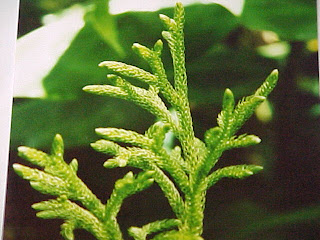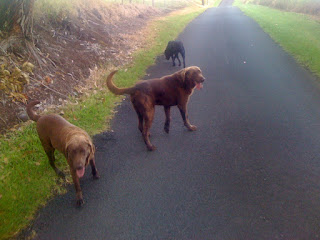
a native tree (Pelea anisata), found only on Kaua'i
As I was searching through my books searching for inspiration for today's word, my eyes were drawn to the word mokihana. Now anyone who knows me oh so well, knows that the mokihana is, by far, my most favorite lei in the world. This has nothing to do with Kaua'i being my favorite island to visit (well, maybe just a tad), but more to do with its wonderful fragrance, anise-scented fruits, strung together and entwined with maile lauliʻiliʻi lest the wearer bear the dark scars of burns. Yes, the mokihana berries may actually leave burn marks on the wearer's skin, especially if exposed to the sun. I always told people that the marks were well worth the wear because the smell just puts me in a trance. I can literally smell mokihana in the Edith Kanaka'ole Stadium during Merrie Monarch time rows and rows away from me and can follow the scent until I find the wearer. Its fragrance is becoming more and more elusive to me as perhaps it is becoming harder and harder to find.
The mokihana is the lei of the island of Kaua'i which is quite appropriate since it is endemic to the island (arrived by natural means and cannot be found anywhere else on earth). Entwined with the maile lauliʻiliʻi (small leafed maile, also found most abundantly on Kaua'i), it can be purchased when in seasons for $40+. Unfortunately, harvesters of these berries do not always take care of the trees when picking, often picking the fruit that is not quite ready (too small, too green) or overpicking to feed their pocketbook.
Mokihana onaona o Maunahina, lei hoʻohihi a ka malihini - The fragrant mokihana of Maunahina, lei in which visitors delight.
I kahi ʻē nō ke kumu mokihana, paoa ʻē nō ʻoneʻi i ke ʻala - Although the mokihana tree is at a distance, its fragrance reaches here (although a person is far away, the tales of his good deeds come to us)













